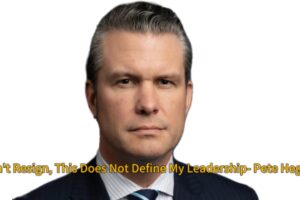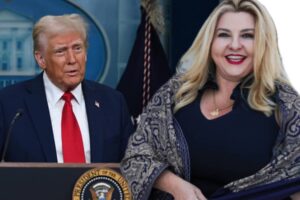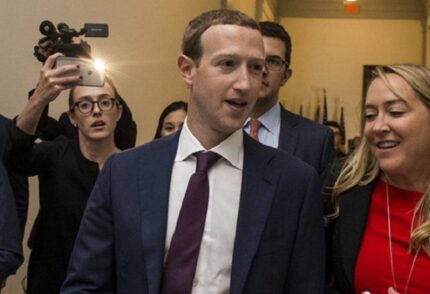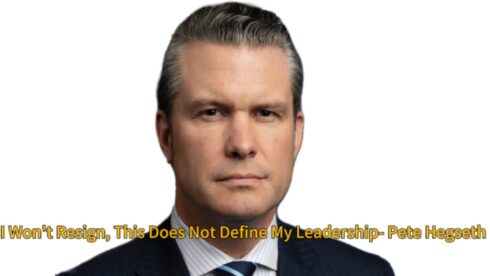Mark Zuckerberg, the CEO of Meta, was recently spotted at Mar-a-Lago for a second meeting with former President Donald Trump, fueling speculation about the tech mogul’s political motives. Zuckerberg’s Gulfstream G650 jet was seen parked next to Trump’s iconic “Trump Force One” at Palm Beach International Airport, marking a notable convergence of power and influence.
The meeting comes amid a controversial shift in Meta’s policies, including the abrupt termination of its fact-checking program. Critics argue the decision signals Zuckerberg’s capitulation to conservative political pressure. This latest interaction with Trump, coupled with significant changes within Meta, has drawn sharp criticism from both industry experts and political observers.
Meta’s Controversial Policy Shifts
Mark Zuckerberg’s Meta group, which oversees Facebook, Instagram, and Threads, has introduced sweeping changes that have left users and staff stunned. Central to the controversy is the discontinuation of Meta’s fact-checking program, previously lauded for reducing misinformation across its platforms. Studies highlighted its effectiveness in combating false narratives, particularly during election cycles.
Further fueling outrage is Meta’s decision to allow the classification of LGBTQ+ individuals as mentally ill and to promote executives perceived as pro-Trump. The inclusion of UFC President Dana White on Meta’s board has also raised eyebrows, adding to concerns over the company’s direction. Critics argue these moves reflect an ideological shift that aligns Meta more closely with conservative agendas, particularly those championed by Trump.
Oversight Board Voices Concerns
Michael McConnell, co-chair of Meta’s independent Oversight Board, has publicly voiced concerns over the optics and implications of Zuckerberg’s decisions. Speaking to NPR, McConnell acknowledged that the changes give the appearance of “buckling to political pressure.” He emphasized the need for policy reforms to be introduced during less politically charged times to avoid accusations of partisanship.
McConnell also revealed that the Oversight Board was not consulted about the decision to end the fact-checking program. “We did not know they were revising that standard,” he admitted, expressing disappointment at being blindsided. He further noted that the program had disproportionately corrected misinformation from right-wing sources, though he stopped short of attributing this to political bias.
Mark Zuckerberg Defends Controversial Policy Changes at Meta
In a five-minute video outlining Meta’s new policies, CEO Mark Zuckerberg admitted to significant flaws in the platform’s fact-checking program, citing widespread mistakes and allegations of censorship. “Fact-checkers have just been too politically biased and have destroyed more trust than they’ve created,” Mark Zuckerberg stated. He argued that the platform’s fact-checking mechanisms had reached a breaking point, prompting the need for drastic reforms.
Joel Kaplan, a known Trump ally and Meta’s newly promoted chief global affairs officer, echoed Zuckerberg’s sentiments during an appearance on Fox News. Kaplan claimed that political bias within the fact-checking program had undermined its credibility. However, independent studies challenge these assertions, showing that Meta’s fact-checking efforts effectively curtailed misinformation on the platform. Despite acknowledging that misinformation might increase under the new policies, Mark Zuckerberg justified the changes, emphasizing the importance of free expression. “The reality is that this is a trade-off. It means that we’re going to catch less bad stuff, but we’ll also reduce the number of innocent people’s posts and accounts that we accidentally take down,” he explained.
Alarming Shift in Policies on LGBTQ Protections
Meta’s policy overhaul includes the controversial removal of safeguards designed to protect LGBTQ individuals from abusive content. Under the new guidelines, users will now be allowed to share allegations of mental illness or abnormality based on a person’s gender identity or sexual orientation. This change, which Zuckerberg framed as aligning with “mainstream discourse,” has drawn widespread criticism from advocacy groups and the LGBTQ community.
Mark Zuckerberg defended the shift as part of a broader effort to eliminate restrictions on sensitive topics such as immigration and gender, which he described as outdated. “We’re trying to get rid of a bunch of restrictions on topics like immigration and gender that are just out of touch with mainstream discourse,” he said. Critics warn that this move could lead to a surge in hate speech and harassment on the platform, exacerbating existing tensions in political and religious debates over transgender and LGBTQ issues.
Meta’s decision to loosen its content moderation policies marks a significant pivot in its approach to managing online discourse, sparking debates about the balance between free expression and safeguarding vulnerable communities














